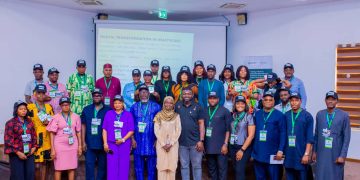The Director General of the National Biosafety Management Agency (NBMA), Agnes Asagbara, emphasized the importance of educating grassroots communities about biosafety. Such education can significantly contribute to Nigeria’s biodiversity conservation. During a workshop for Community-Based Organizations (CBOs) organized by the Climate and Sustainable Development Network of Nigeria (CSDevNet), Agnes highlighted that 174 million hectares of land have been saved from being plowed and cultivated through modern biotechnology. This achievement demonstrates the positive impact of biosafety practices on conserving our natural resources.
Moreover, a recent study between 1996 and 2015 revealed that 574 million tonnes of products derived through modern technology have contributed to biodiversity conservation in Nigeria. The integration of biosafety and modern biotechnology is essential for overall environmental conservation and sustainability. By engaging in conversations about biodiversity conservation, events like the one organized by CSDevNet can lead to a paradigm shift in stakeholders’ perception, ultimately benefiting both local communities and the environment.
It’s crucial to recognize that Nigeria is a global biodiversity hotspot, home to critically endangered species such as the Niger Delta Red Colobus, Cross River Gorilla, Gambles’ Relic, Gamble’s Flatwing, and Perret’s Toad. However, despite its numerous benefits, biodiversity is not always well appreciated or promoted in Nigeria. Poaching of rare and endangered animals often goes unpunished. To address this, concerted efforts are needed to raise awareness, educate the populace, and implement sustainable practices that protect our rich biological resources.
























